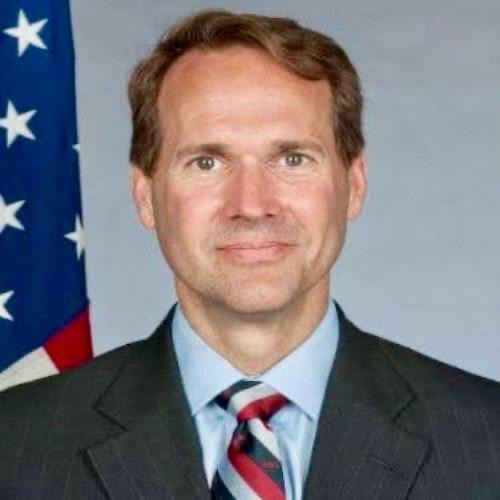By Mark Longyen
Amb. Troy Fitrell, U.S. Department of State’s acting Head of Africa Bureau, says the country has now shifted its diplomacy in Sub-Saharan Africa from an ‘assistant-led’ to an ‘investment-led’ strategy.
The envoy, who disclosed this in a digital news conference during an official visit to West Africa, explained that going forward, commercial diplomacy would be the core focus of U.S./African engagement.
He said that the Donald Trump administration had adopted new commercial diplomacy strategy, and expressed the hope that the policy would attract private sector actors and galvanise local economies.
Fitrell said that was why earlier in February, President Donald Trump rescinded more than 90 per cent of foreign assistance contracts by the U.S. Agency for International Development (USAID).
According to him, the decision has resulted to U.S. overall aid cut of about 60 billion dollars, affecting many sectors, including Africa’s health funding, war-affected populations, humanitarian and development assistance programmes.
He said “we have for decades been defined by an assistance-led paradigm, and we are directly and intentionally shifting that toward an investment-led strategy.
“For too long, we’ve prioritised development assistance over promoting U.S. commercial engagement in Africa but the focus, going forward, will be trade, not aid.
“U.S. ambassadors are now being evaluated on how effectively they advocate for U.S. business and the number of deals they facilitate.”
The envoy explained that in line with the new policy, U.S. ambassadors serving in Africa were mandated to explore commercial opportunities and to advocate for the country’s companies.
He said the envoys were also expected to identify market reforms needed to enhance the business environment and engage with African governments on implementation.
He added that “with focus on commercial diplomacy, we must do more to connect a greater number of U.S. companies to opportunities in Africa, especially those that have yet to do business on the continent.
“With that, we can connect a greater share of the nearly 300,000 export-ready U.S. companies and the 120 trillion dollars U.S. capital market to the African continent.”
Fitrell said the Lobito Corridor, a multi-billion dollar railroad project connecting DR Congo, Zambia, and Angola with its Lobito Port for the transportation of essential goods and minerals, was the kind of project that would attract U.S. investment.
He said the future of the African Growth and Opportunity Act (AGOA), the cornerstone of U.S. economic relations with dozens of African nations, rested with the U.S. Congress, adding that he was AGOA’s fan.
“My expectation is if there’s going to be a renewal of AGOA, it will probably reflect the modern world, rather than the one from 25 years ago when it was first founded,” he added.
The envoy said that the U.S. engagement with Africa would lead to more jobs and the development of Africa’s middle class.
“Just in the first 100 days of the Donal Trump administration, we’ve had 33 new deals worth more than six billion dollars, including several that were concluded last week in Abidjan,” he said.
The News Agency of Nigeria (NAN) reports that Fitrell also took part in an event, the Africa CEO Forum, organised by the U.S. embassy in Abidjan and the U.S Chamber of Commerce.
He also laid out a six-pronged action plan and addressed the American Chambers of Commerce Business Summit 2025 at the forum, which was co-hosted by Jeune Afrique Media Group and the International Finance Corporation.(NAN)
Edited by Hadiza Mohammed-Aliyu












